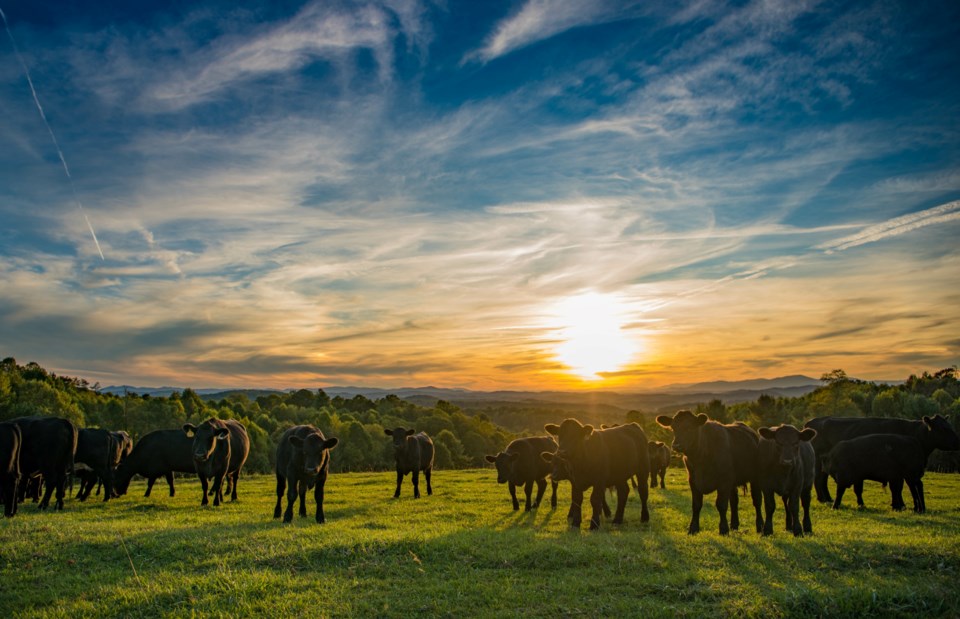The Bruce Mines farmer is past president of the Canadian Federation of Agriculture, the Ontario Federation of Agriculture and the Algoma Federation of Agriculture.
He’s been at the table for trade negotiations and policy discussions that had a profound impact on one of Canada’s top economic sectors.
Some of the issues which the local beef producer had on his plate included mad cow disease, NAFTA and the Walkerton effect on nutrient management. He was instrumental in creating the World Farm Organization.
A year ago, Bonnett stepped aside from the CFA and the never-ending stream of issues facing the industry.
“Sometimes change is good,” said Bonnett. “That’s why I stepped down from the CFA. I’ve been there a long time.”
The decision meant Bonnett just missed being in the thick of addressing the impacts COVID-19 has on agriculture.
“It’s affected every sector,” he said.
On the labour side, COVID has hit production at meat packing plants and workers who pick crops.
The supply chains are extremely tight and that’s had an impact on major producers and small farmers like Bonnett, who raises about 250 head of cattle on his Algoma farm.
“We had some people asking about getting some hamburger and we were going to ship some animals to get processed at a provincial plant. The earliest we can get any animals in right now is between September and October,” he said.
When you look at this through a national lens, the daunting situation facing cattle producers becomes clear.
“Everything is backed up,” he said. “You feed these animals and have to care for them when really they should be marketed.”
Bonnett said the COVID-19 situation may provide a spark for some in local agriculture. Construction on a new Algoma abattoir is expected to start in the spring at Penokean Hill Farms.
He also sees some positive growth with people moving into the area looking to establish larger crop farms.
David Thompson is research project co-ordinator at the Rural Agri-Innovation Network (RAIN).
RAIN is a division of the Sault Ste. Marie Innovation Centre dedicated to supporting farmers and communities enhance the agriculture and food sector in Algoma.
Thompson points to future growth in local meat processing and the horticultural scene as areas of positive potential.
“What this pandemic has shown is that larger suppliers are vulnerable to disruptions,” said Thompson.
Smaller horticultural operations and backyard gardeners are ready to roll up their sleeves now that COVID-19 restrictions have been eased. In fact, Thompson has seen significant growth in horticultural farms in the area.
“The greenhouses and garden centres have been very busy from what I understand,” said Thompson.
“We are seeing a big increase in people’s interest to buy local. A lot of farmers and businesses have pivoted to offer online sales.”
One thing that does concern Thompson is the fate of the restaurant industry, which he says buys a lot of local food.
“Over the years we have seen an increased interest from chefs locally to purchase local. Through our buyalgoma.ca marketing platform we have seen a lot more restaurants come on board.”
He said the Sault has many excellent restaurants with great recipes which could provide an opportunity for chefs to expand their offerings to products such as salad dressings and barbecue sauces.
“At this point it is very difficult for them to see how they can keep their kitchens going. RAIN is very interested in developing product ideas for chefs,” said Thompson.
The biggest change Thompson sees taking place because of COVID-19 is how people buy their food.
People are getting very used to shopping online and small businesses that offer a good online experience will have a better chance at survival.
Bonnett also sees the changes, but as someone who has been part of numerous global trade talks, he understands the importance of international connections and consistent federal support to Canadian agriculture.
He said there is going to be growth in some local marketing, but there’s still going to be that need to supply the big chains where people go and shop for food at reasonable prices.
“We take it for granted that the cost of our food compared to what we spend on other things is not that high,” said Bonnett.
In many ways, the COVID-19 pandemic reinforced what Bonnett has been working on for much of his life as an agricultural leader.
“COVID is a classic example of how no individual country can respond on its own. There has to be some sort of co-ordinated effort to deal with it,” he said.
“I am a little concerned by what I see as the sort of pulling away from international agreements that really set the guidelines.”
